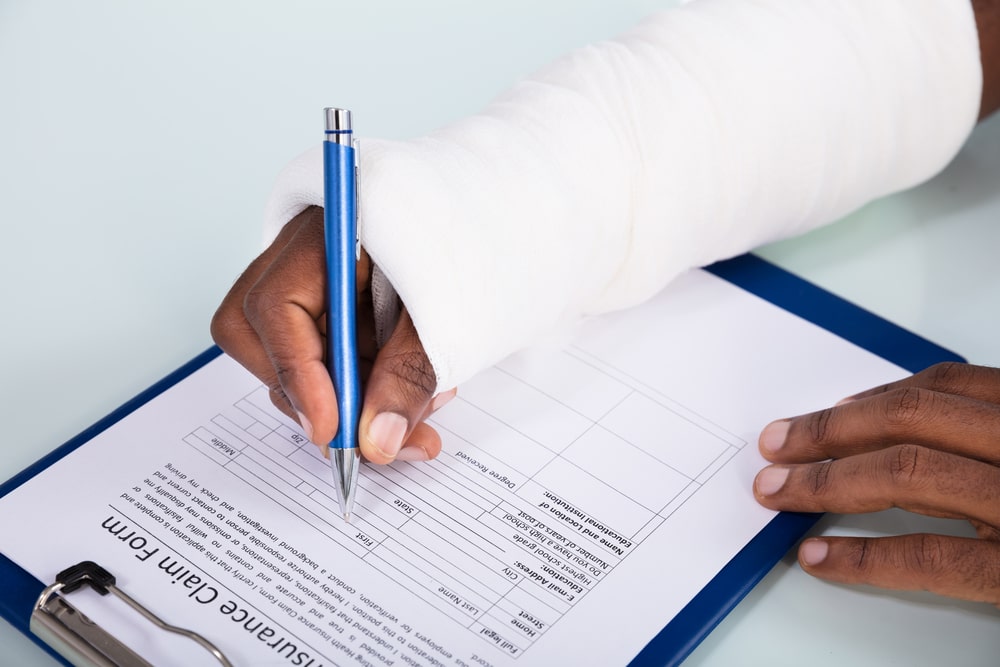
VA Disability Compensation
A veteran is entitled to disability compensation if he or she were (1) discharged or released from the military under conditions other than dishonorable, (2) their disease or injury was incurred or aggravated in the line of duty, and (3) the disease or injury was not the result of the their own willful misconduct or abuse of drugs.
If entitled to disability compensation, a veteran will receive monthly monetary payments, which for a single veteran with no dependents ranges from $152.64 for a disability rated at 10 percent and up to $3,332.06 for a 100 percent rating. Severely-disabled veterans may be eligible to receive special monthly compensation which can exceed the 100 percent payment rate. It helps to work with a VA disability lawyer who can help you understand this information and the necessary requirements involved.
LINE OF DUTY REQUIREMENT
The “line of duty” requirement is generally satisfied when a medical condition occurs or is aggravated during a period of active military service. There is no requirement that the medical condition be casually related to actual military duties. Generally, the only element needed to satisfy the “line of duty” requirement is a time based connection between the manifestation or aggravation of a medical condition and a period of military service. For example, a veteran who injures his back while on leave at home is just as entitled to disability compensation as a veteran who injures his back in a Humvee rollover accident while serving in Afghanistan.
REQUIREMENTS TO RECEIVE DISABILITY COMPENSATION
The first requirement is competent evidence of a current disability. This means a veteran must be able to show that he or she currently suffers from a disability. An injury or illness incurred during service without lasting symptoms is not eligible for compensation.
The second requirement is evidence of an in-service precipitating disease, injury, or event – in other words, evidence that the disease or injury occurred during service. The standard for proving that a disease or injury occurred or was aggravated during service is called the “at least as likely as not” standard, which means the evidence must show there is at least a 50% chance the disease or injury occurred or was aggravated during service.
The third and final requirement for entitlement to disability compensation is a nexus between the current disability and the in-service precipitating disease, injury, or event. This is commonly referred to as the nexus requirement for service connection. Failure to show service connection is the most common reason disability claims are denied so it is important to know the type of evidence required to support a successful claim.
MULTIPLE TYPES OF SERVICE CONNECTION
There are four main legal theories to establish service connection. They are:
- Direct service connection means a direct causative link between a current disability and an event that occurred during service, or a disease or mental disorder first diagnosed in service. Two examples of where direct service connection could be established are where a veteran is first diagnosed with depression during service, or where a veteran suffers a muscle injury due to a gunshot wound during service.
- Secondary service connection means either a service-connected disability caused another medical condition or a service-connected disability made a condition that pre-existed service (“pre-existing”) worse. For example, a veteran with a service-connected knee injury may be able to establish secondary service connection for their back if the medical evidence shows her knee condition caused or aggravated the back condition. The veteran would then be compensated for both her knee and back.
- Aggravated service connection means a pre-existing medical condition was aggravated by or got worse during service. When a service member’s preexisting injury or disease increases in disability during service, the injury or disease is considered aggravated by service unless VA makes a specific finding that the increase in disability was due to the natural progression of the medical condition.
- Presumptive service connection means service connection for a medical condition is established by legal presumption. The most well-known example of presumed service connected medical conditions is the list of presumptive medical conditions associated with Agent Orange exposure.
HOW I CAN HELP
I represent veterans and their family members at every level of the VA benefits adjudication process including the local Regional Office, the Board of Veterans’ Appeals, the Court of Appeals for Veterans’ Claims, and the U.S. Court of Appeals for the Federal Circuit. If you disagree with a recent VA rating decision, contact me to review your appeal options.
MY FEE
I work on a contingency fee basis which means you pay no up-front fees for my representation. You only pay my fee if I successfully resolve your appeal. My fee is a reasonable percentage of your backpay award, and does not impact your future benefits.
In addition, I advance all costs of your appeal including the cost of obtaining independent medical examinations (when appropriate). You are only responsible for repayment of expenses upon successful resolution of your appeal, or if you terminate my representation before final conclusion of your appeal.
WHY ME
I handle every aspect of your case from initial intake to resolution, and as a disabled veteran myself, I understand what you are going through. I don’t use support staff, so you are always dealing with me and I pride myself on responding to my clients in a timely manner.
Frequently Asked Questions About VA Disability Benefits
Can I appeal my case if my benefit amount is low?
As a trusted VA lawyer regularly sees in their cases, one of the common issues that many people who file VA disability claims experience are low disability compensation benefits. This is an issue that many lawyers assist clients with. There are several ways that you can obtain the right benefit amount that you need. You can provide medical documents as evidence that you require a larger benefit amount. You are able to appeal your amount, and hiring a lawyer can enable you to get the outcome that you want. With help from a lawyer like one at Gregory M. Rada, Attorney At Law, they can advocate for you and explain why you deserve a higher amount than what you were approved to get.
What types of injuries or illnesses are not eligible?
It is important to note that not every type of injury or illness qualifies an individual to receive disability benefits. A veteran must have suffered their wound, illness, or mental health disorder while they have been serving in the military. If you can’t prove that your condition was related to your service, you will not be able to list that as a qualifying disability. You need to be able to prove that your disability developed while you were an active service member, which also includes training. You can seek help from a VA disability lawyer if you are having difficulty proving that your illness or injury makes you eligible to receive disability compensation benefits.
How do VA disability benefits work?
The Veterans Affairs (VA) department handles claims and dispenses disability benefits to eligible recipients. If an individual meets the requirements, they will be able to receive regular compensation to cover their medical expenses related to their VA disability benefits are awarded on a monthly basis. Individuals who were on active duty and have suffered an eligible disability due to an illness, wound, or injury can receive VA disability benefits. Veterans are assigned a rating for their disability and are given a percentage, such as 60%. The ratings can be changed and is up to the discretion of the VA department. Each claim is evaluated carefully by the VA department and approvals are based on the evidence provided by each claimant.
How do I report changes regarding my expenses?
If you have received VA disability benefits, you may be wondering what you should do if your expenses suddenly change and your benefit amount needs to be adjusted. For example, maybe the nature of your disability has changed and has prevented you from going to work as much. You will need to provide sufficient medical records and other relevant documents as evidence that your expenses have changed and you need a greater disability benefit amount. You can go to the VA and explain your situation so that your rating can be adjusted and your claim can be re-evaluated. They will do a review and determine an appropriate monthly benefit amount that you should be receiving.
Why hire a VA disability lawyer?
A reputable disability lawyer who specializes in assisting veterans receive their benefits can assist you throughout the entire claims process. If you are a veteran and you would like to file a claim, you can depend on a lawyer to help you. The process for obtaining disability benefits can be quite complicated, and you could have issues with paperwork or verification of your disability. If you are dealing with a disability claim as a veteran who has suffered an illness or injury related to your service, you may be eligible to receive compensation through disability benefits. For more information about benefits and eligibility requirements, call Greg at (800) 955-8596 to discuss the details of your case right away.
Our Firm’s Military Experience & Education
Each team member at After Service LLC has a personal connection to the military. Two of our attorneys have served in the armed forces, bringing firsthand experience and understanding to the challenges faced by service members and their families. Our lead attorney, Gregory M. Rada, received his A.A.S. degree in Aviation Operations at the Community College of the Air Force. He then earned his bachelor’s degree in information technology while serving in the Air Force. With our collective military background, we are truly a firm of veterans, for veterans.

7 Steps in a VA Disability Benefits Claim
Filing for VA disability benefits can feel overwhelming, but with the right guidance, you can approach the process with confidence. At Gregory M. Rada, Attorney at Law, we represent veterans nationwide. With over a decade of experience fighting for fair compensation for disabled veterans, we know exactly what it takes to turn a strong case into a winning claim.
Whether you’re filing for the first time or appealing a denied claim, here are the key steps you can expect in the VA disability benefits process.
#1 Gather Your Service And Medical Records
The first step in a successful claim is gathering your military service records and all relevant medical documentation. The VA requires proof of your injury or illness, a diagnosis, and evidence linking it to your service. Missing or incomplete records can cause delays or denials, so this step is crucial for building a strong case.
#2 Submit Your Initial Claim To The VA
You can submit your VA disability benefits claim online, by mail, or in person at a VA regional office. This submission includes VA Form 21-526EZ and all supporting documentation. Filing correctly from the start can prevent delays and increase your chances of approval. Our experienced disability attorney can help verify your claim is accurate and complete.
#3 Undergo A VA Compensation And Pension (C&P) Exam
Once your claim is submitted, the VA may schedule a C&P exam to evaluate the severity of your condition. The examiner’s report plays a key role in determining your disability rating. It’s important to attend this appointment, answer all questions truthfully, and provide clear examples of how your disability impacts your daily life.
#4 Wait For The VA’s Review And Evidence Gathering
After your C&P exam, the VA reviews all submitted evidence and may request additional records. This step can take weeks or even months. Patience is important, but so is staying on top of any VA requests for information so your claim doesn’t stall.
#5 Receive The VA’s Decision Letter
The VA’s decision letter will outline whether your claim was approved or denied, your disability rating, and your effective date for benefits. If you are awarded benefits, you’ll begin receiving monthly compensation based on your rating. If denied, you have the right to appeal.
#6 File An Appeal If Necessary
If you disagree with the VA’s decision, you can appeal through several review options, including a Higher-Level Review, Supplemental Claim, or Board Appeal. Appeals require strong evidence and persuasive arguments, which is where having our skilled veterans disability lawyer can make all the difference.
#7 Continue Ongoing Benefit Management
Even after approval, it’s important to monitor your disability rating and make sure you’re receiving the correct benefits. Conditions can worsen over time, and you may be entitled to an increased rating. Keeping your records updated leads to maximum compensation.
We’ll Stand With You Every Step Of The VA Claims Process
If you’re ready to start your VA disability benefits claim—or fight back against a denial—Gregory M. Rada, Attorney at Law, is here to help. We combine legal knowledge with relentless advocacy to make sure you get the benefits you deserve. Contact us today for a free consultation and let us stand up for your rights.
Office
1580 N Logan St, Ste 660, PMB 4545
Denver, CO 80203
Representing Veterans Nationwide








